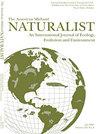圣玛丽大湖上大规模鱼类死亡的记录,以及过去一个世纪鱼类群落和流域栖息地的长期变化说明
IF 0.6
4区 环境科学与生态学
Q4 Agricultural and Biological Sciences
引用次数: 1
摘要
摘要我们评估了2020年夏天美国俄亥俄州中西部圣马里斯大湖因长期缺氧而发生的大规模鱼类死亡事件,并以此为基础比较该湖过去一个世纪的长期物种多样性。鱼类采集是沿着一系列海岸线和开放水域横断面进行的,总计约占整个5220公顷湖泊面积的1.5%(大多数调查都是海岸线),其中我们共确定了12351种鱼类,包括25个分类群。我们利用这一死亡事件,结合最近的近岸围网调查数据,作为评估现代组合结构的机会,并作为过去一个世纪以前收集的数据的参考点。将这些最新数据与历史记录相结合,我们发现,尽管自19世纪中期以来,该湖已记录了57种物种,但目前已知只有30个分类群栖息在该湖。可以预见,一些丢失的分类群包括来自Darter(鲈鱼科)、Minnow(鲤鱼科)和Sucker(鲶鱼科)科的更不耐受的物种;然而,也有由于国家放养努力(如平头鲶鱼、Pylodicis olivaris)和自然分布扩张(如淡水鼓、Aplodinots grunniens)而导致分类群增加的例子。总的来说,我们认为鱼类群落的变化是负面的,因为目前湖中没有不耐受的类群。我们将这些长期变化归因于流域范围内对曾经代表该地区的天然森林、湿地和草原栖息地的破坏。本文章由计算机程序翻译,如有差异,请以英文原文为准。
Documentation of a Massive Fish Die Off on Grand Lake St. Marys, with Notes on Long-term Changes in Fish Assemblage and Watershed Habitat Over the Past Century
Abstract. We assessed a large-scale fish die off event resultant of prolonged anoxic conditions on Grand Lake St. Marys in west central Ohio, U.S., during the summer of 2020, and used this as the basis for comparing long-term species diversity in the lake over the past century. Fish collections were made along a series of shoreline and open water transects, totaling approximately 1.5% of the entire 5220 ha lake area (majority of surveys were shoreline), wherein we identified a total of 12,351 fish comprised of 25 taxa. We used this die off event, combined with recent near shore seine survey data, as an opportunity to assess the modern assemblage structure and to serve as a reference point to prior collected data over the past century. Combining these recent data with historical records, we found that although 57 species have been recorded from the lake dating back to the mid-1800s, only 30 taxa are known to inhabit the lake today. Some of the lost taxa predictably include more intolerant species from the Darter (Percidae), Minnow (Cyprinidae), and Sucker (Catostomidae) families; however, there were also instances of increases in taxa resulting from both state stocking efforts (e.g. Flathead Catfish, Pylodictis olivaris) and natural distribution expansions (e.g. Freshwater Drum, Aplodinotus grunniens). Overall, we attribute the changes to the fish assemblage as negative, given no intolerant taxa currently inhabit the lake. We attribute these long-term changes to watershed wide destruction of natural forest, wetland, and prairie habitats that once typified the region.
求助全文
通过发布文献求助,成功后即可免费获取论文全文。
去求助
来源期刊

American Midland Naturalist
环境科学-生态学
CiteScore
1.20
自引率
0.00%
发文量
38
审稿时长
18-36 weeks
期刊介绍:
The American Midland Naturalist has been published for 90 years by the University of Notre Dame. The connotations of Midland and Naturalist have broadened and its geographic coverage now includes North America with occasional articles from other continents. The old image of naturalist has changed and the journal publishes what Charles Elton aptly termed "scientific natural history" including field and experimental biology. Its significance and breadth of coverage are evident in that the American Midland Naturalist is among the most frequently cited journals in publications on ecology, mammalogy, herpetology, ornithology, ichthyology, parasitology, aquatic and invertebrate biology and other biological disciplines.
 求助内容:
求助内容: 应助结果提醒方式:
应助结果提醒方式:


